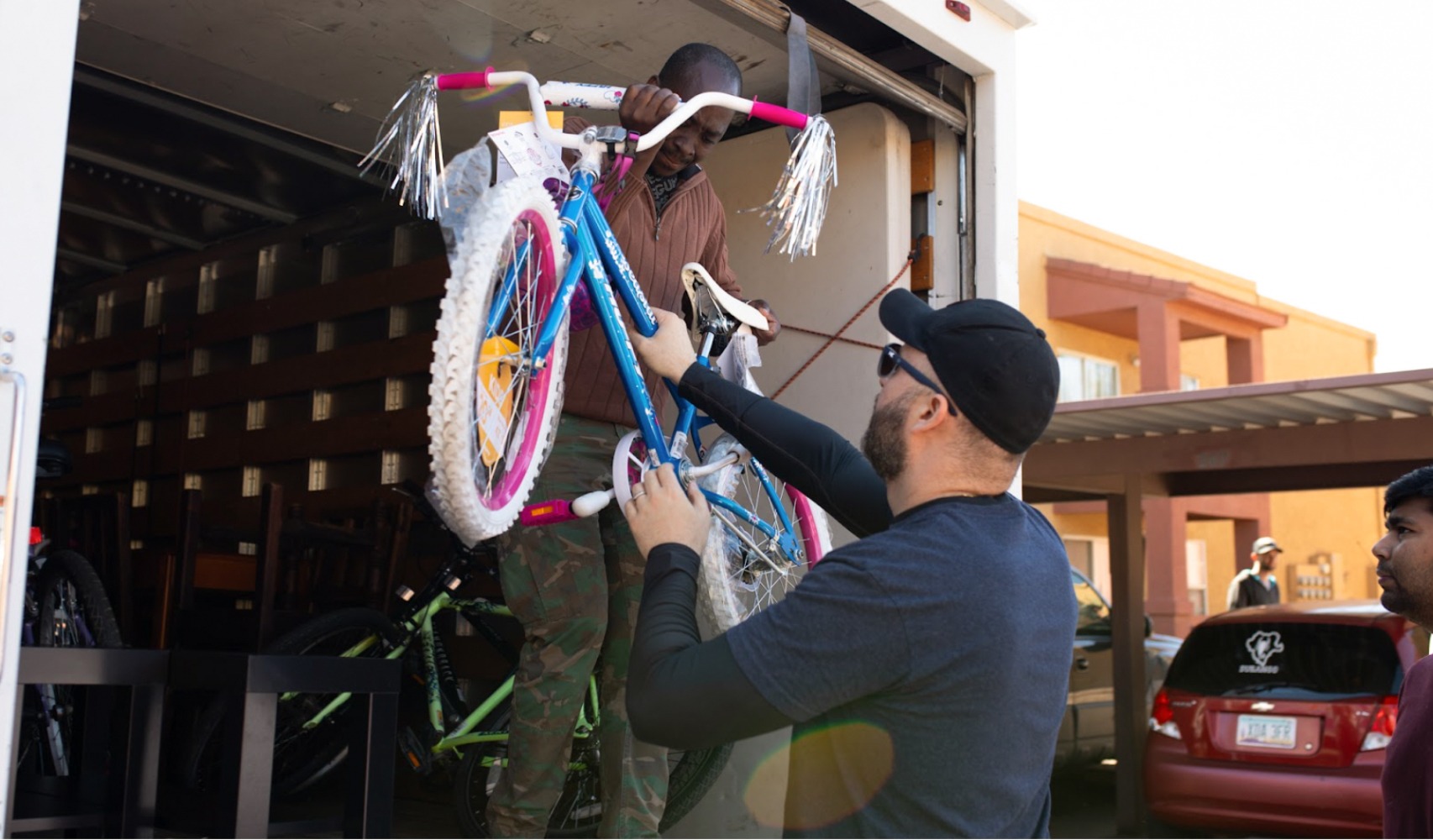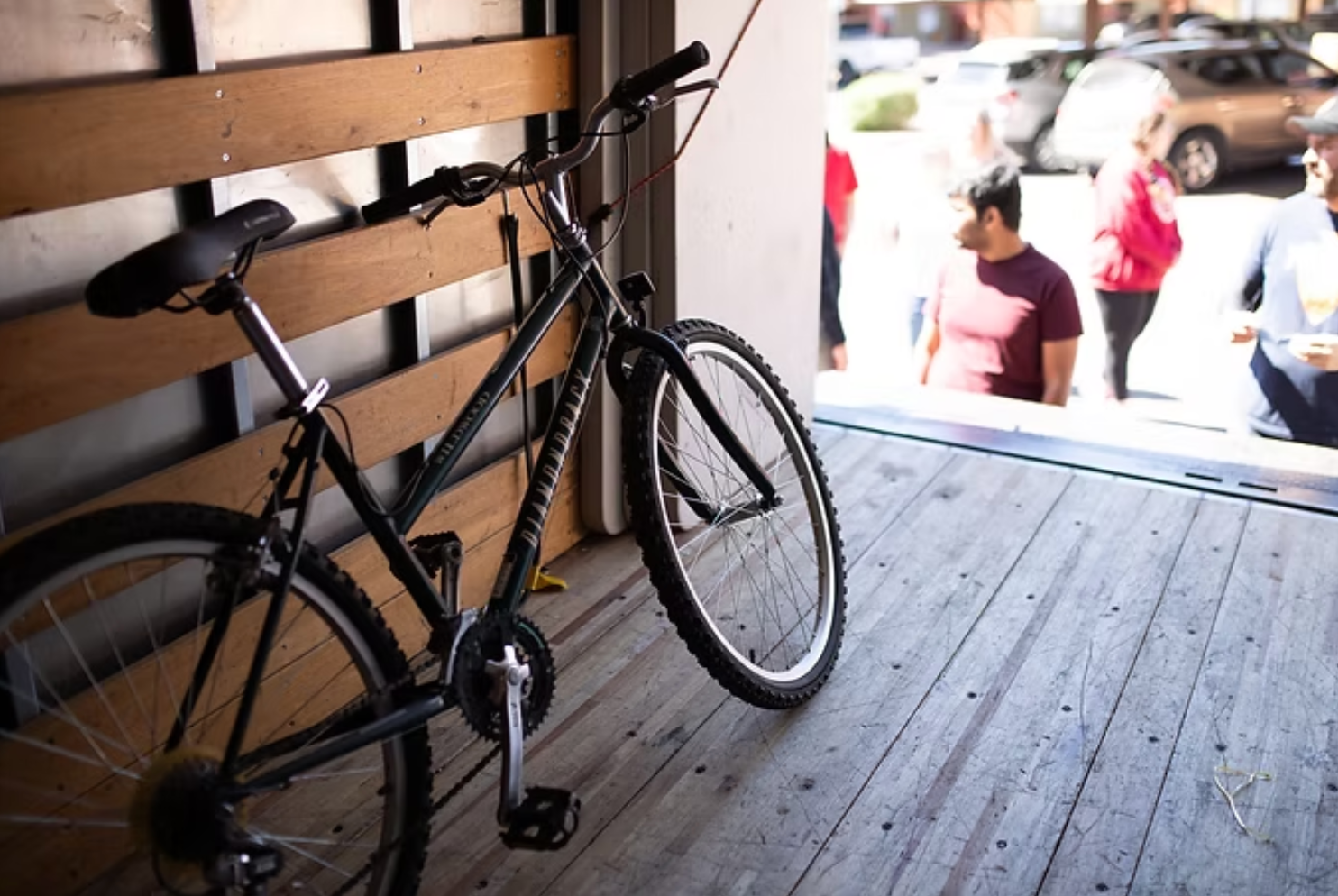‘I hope she gets everything in this world’
By Lily Combs

Most refugees come to the U.S. with nothing but their family and a suitcase containing all their worldly possessions. When they leave their countries, many can take little to nothing from their homes, and some flee with only the clothes on their back.
When a resettlement agency welcomes a refugee, it will organize housing and light furnishings for them. However, as a nonprofit, its resources can only stretch so far. This is where the help of The Welcome to America Project (WTAP) comes in.
WTAP is a nonprofit organization located in the Phoenix area that welcomes refugees resettling through an agency by providing them with free resources and items to fill their homes.
“If you've ever met with a refugee or met with somebody who's brand new to America, they have kind of the bare minimum within their household,” said Amela Duric, WTAP’s development manager. “They have, you know, a couch, maybe a bed, one set of bed sheets, just your very bare minimum necessities around their house.”
Throughout the week, WTAP staff do home visits to refugees who are referred by resettlement agencies. They assess the needs of the individual or family, and with volunteers, they begin organizing and packing donated items for delivery. These items may include chairs, kitchen appliances, hygiene products, TVs, bikes and more. Nearly every Saturday, the organization will go with a team of volunteers to welcome families and deliver items. An average of eight families are welcomed each week

The organization also has other programs like bike repair events, free mobile clothing closets and career services.
“The thing about WTAP is we're creating community, and I think it's a beautiful environment for both volunteers and the newcomers,” said Kevin Groman, WTAP’s executive director. “There’s no way to really describe it. It's just a beautiful opportunity.”
Since its creation in 2001, the organization has served over 15,000 refugees from over 40 countries.
“A refugee isn't one face, it isn't one color, it isn't one shape or size,” Duric said. “You don't know someone's story and you don't know where they came from, and that's why it's so important to be empathetic and be kind and be welcoming.”
Duric is a former refugee herself. She came to the U.S. in 1999 when she was seven years old.
Duric was born in Bosnia and Herzegovina in 1992 — the year the Bosnian War broke out. Her parents fled the country when she was only five months old to escape persecution. They left on a bus packed with others who were fleeing and brought only their two children and a bag of clothes, documentation and minimal cash. Duric spent the first seven years of her life moving from different places as her parents sought safety.
“We were living in different refugee housing, and at any given point, you were staying in a room with families of like 30,” Duric said. “So, for me, that was very normal growing up.”
When her family was granted resettlement into the U.S. in ’99, they were assigned to World Relief, a humanitarian organization with resettlement services. A sponsor family with the organization welcomed them at an airport in Illinois and assisted Duric's family throughout their resettlement process.
After their arrival, they were brought to a minimally furnished one-bedroom apartment, which Duric said had about two couches, two twin beds, a TV set on the floor and a few utensils.
Throughout most of her early childhood, Duric never received anything new. When she first arrived in the U.S., she said everything her family received was donated. One of the first new items she was ever given was a pink Razor scooter, still in its box and all for herself.
“I rode that thing that first day like till the wheels fell off,” Duric said. “I think I was all scratched up and I fell off of it like 20 times, but it was mine and mine only, and I was so excited about it.”
Duric moved to Arizona in 2002, and about seven years ago she connected with WTAP as a volunteer. She has been a part of its staff for over a year now.
By working with WTAP, Duric got to relive her childhood memory with her pink scooter through a family she served.
Several years ago, during a Saturday Welcome, Duric visited a Syrian family with three children around the ages of six to nine. While unloading supplies, she noticed a scooter in one of the cars. Duric handed it to one of the daughters, who gazed at the mysterious contraption with confusion. However, once Duric rode the scooter, the little girl was filled with excitement.
“I give it to her and then it hit me, and I was like, ‘Oh my God, that was me,’” Duric said as tears filled her eyes. “I saw myself in her, and it was like, she has no idea what's going on or what's happened or what to expect from life in the next 20 years, but deep down I'm rooting for her, and I'm praying for her and I hope she gets everything in this world.”
The impact of WTAP goes beyond the material items.
Through the organization, some children receive their first-ever gift, parents are given resources to be successful in the U.S., individuals who are welcomed are inspired to serve other newcomers and community is created.
Post a comment